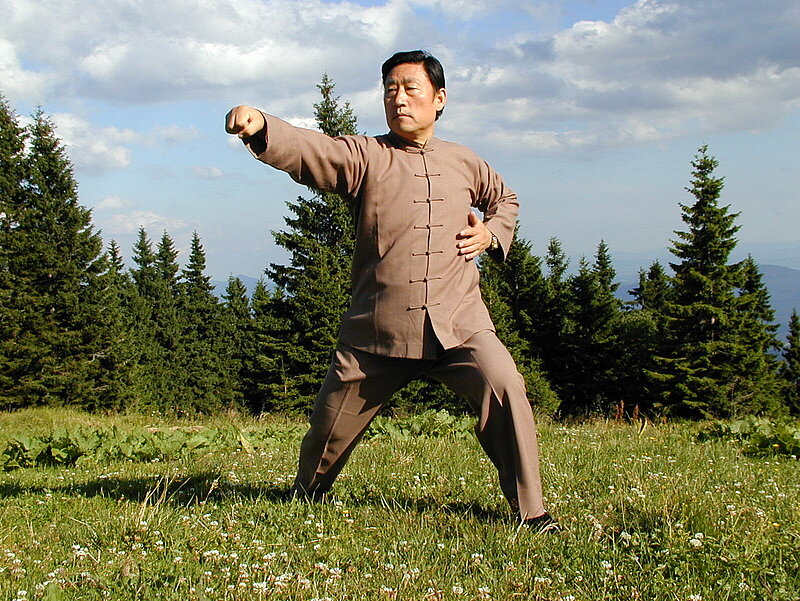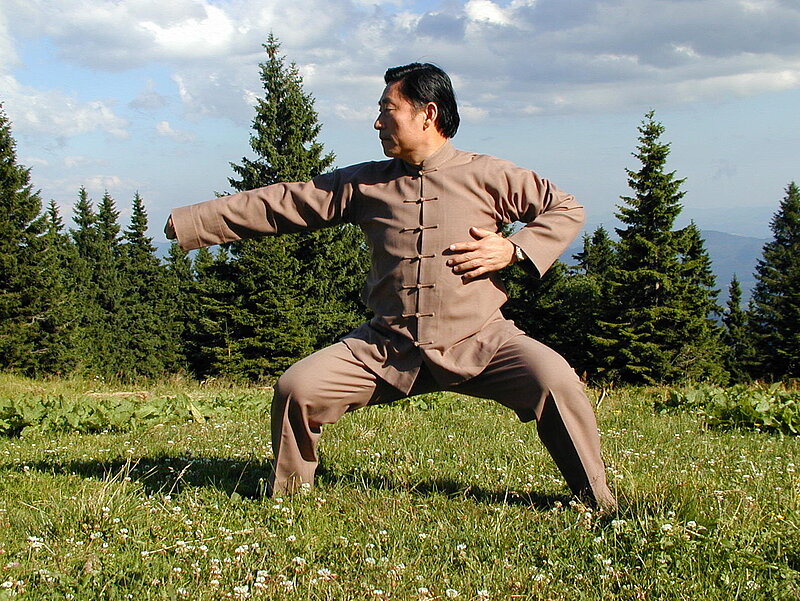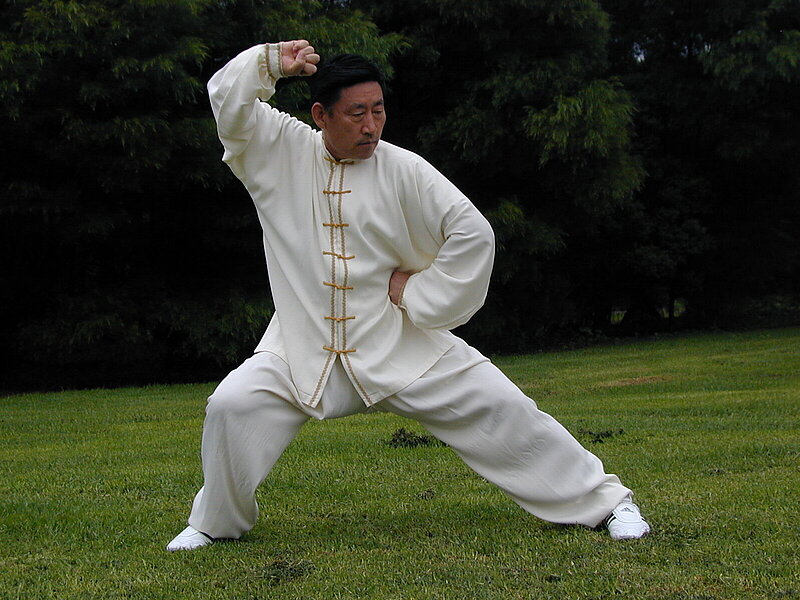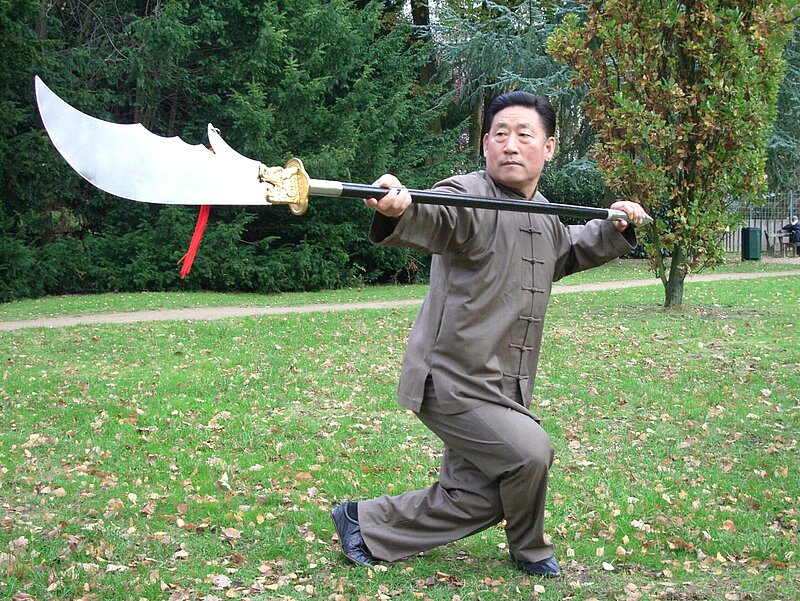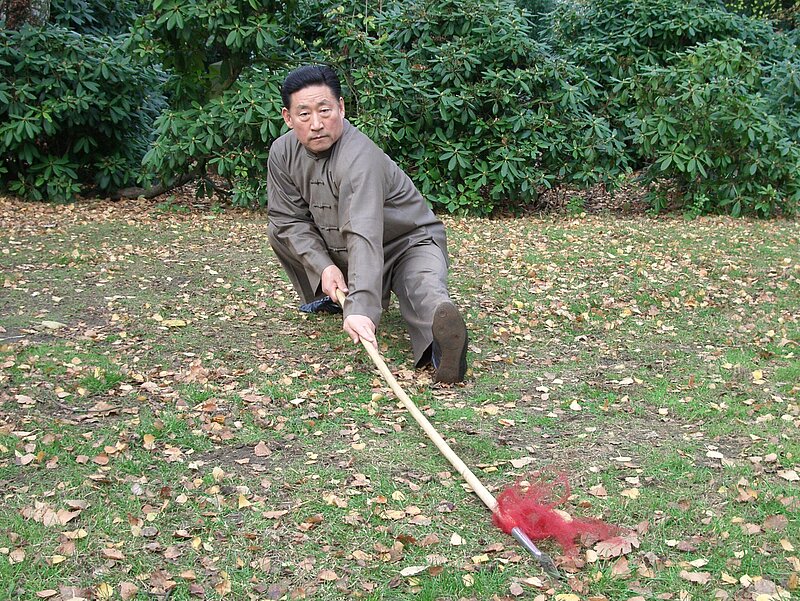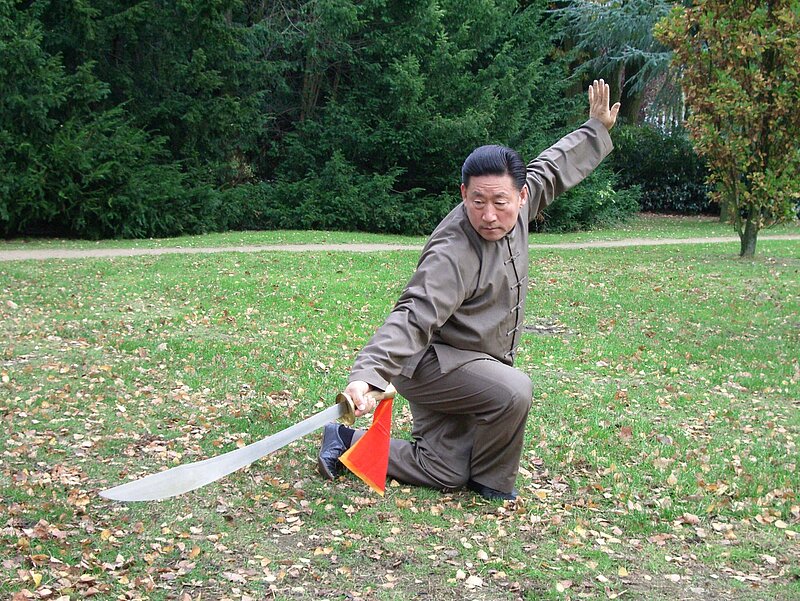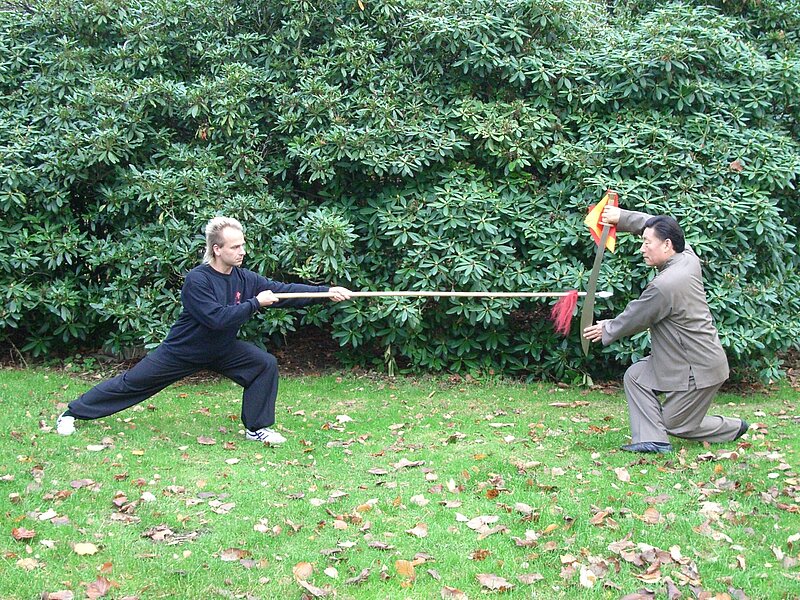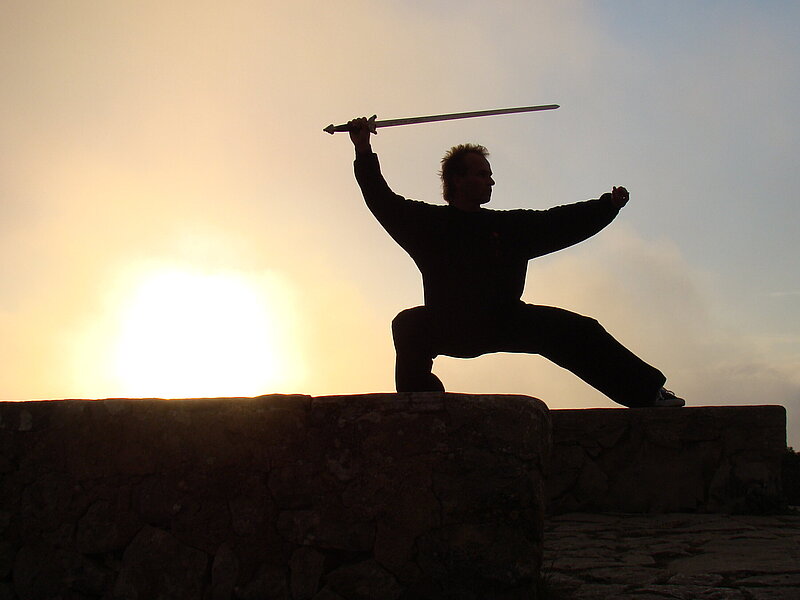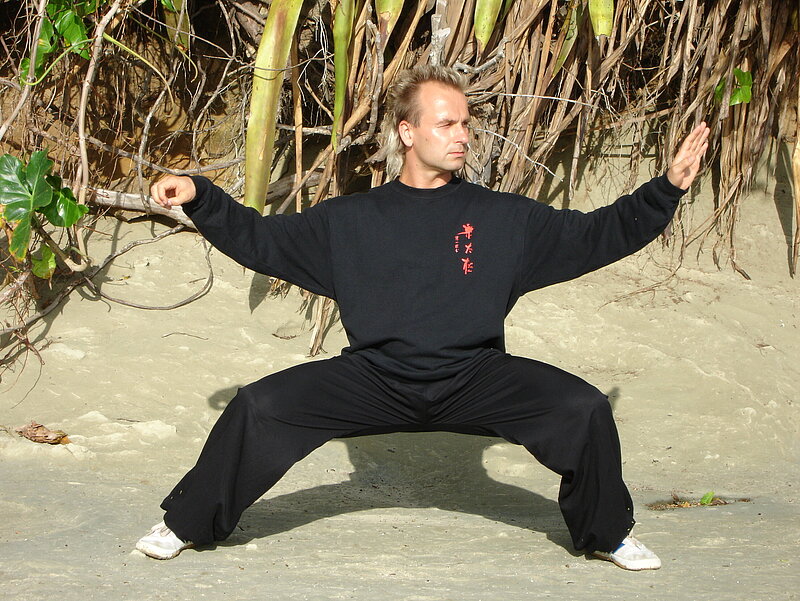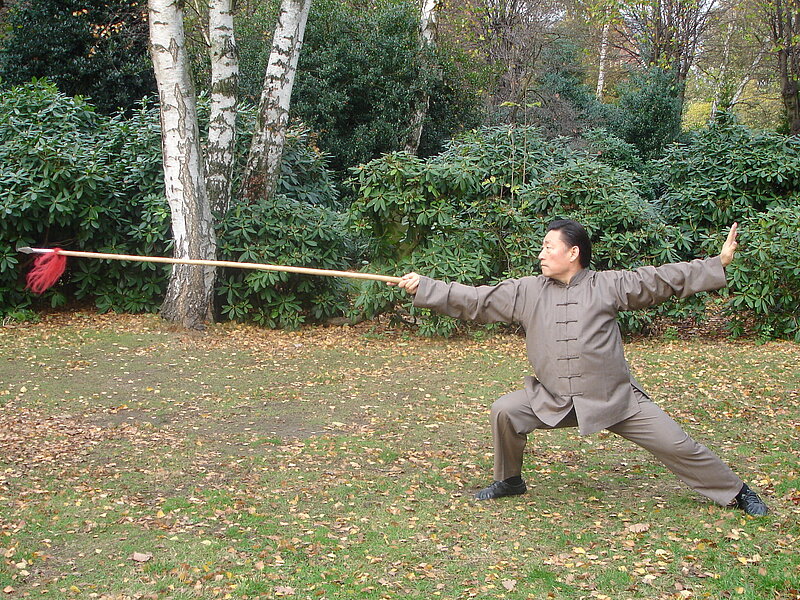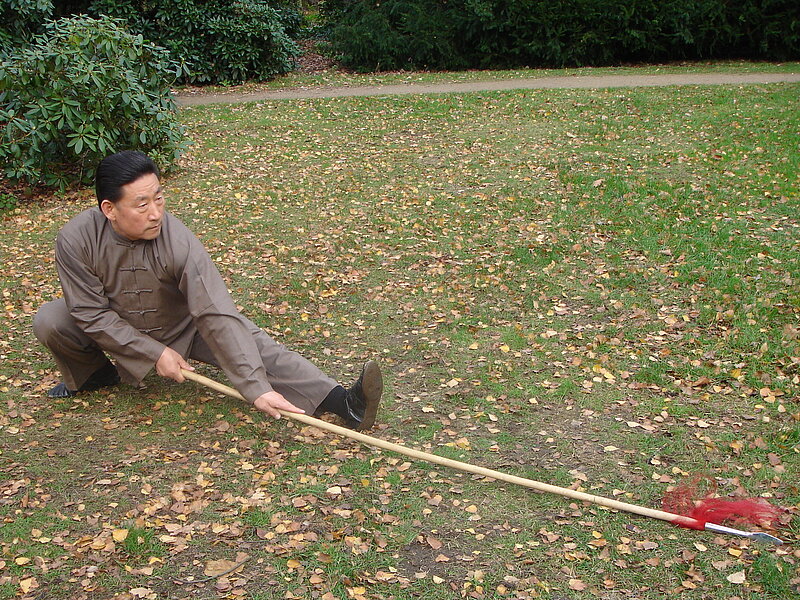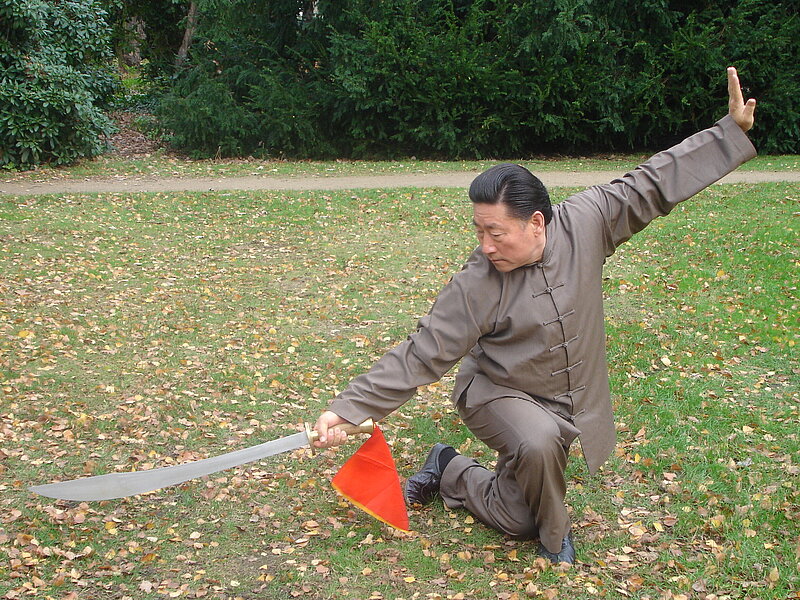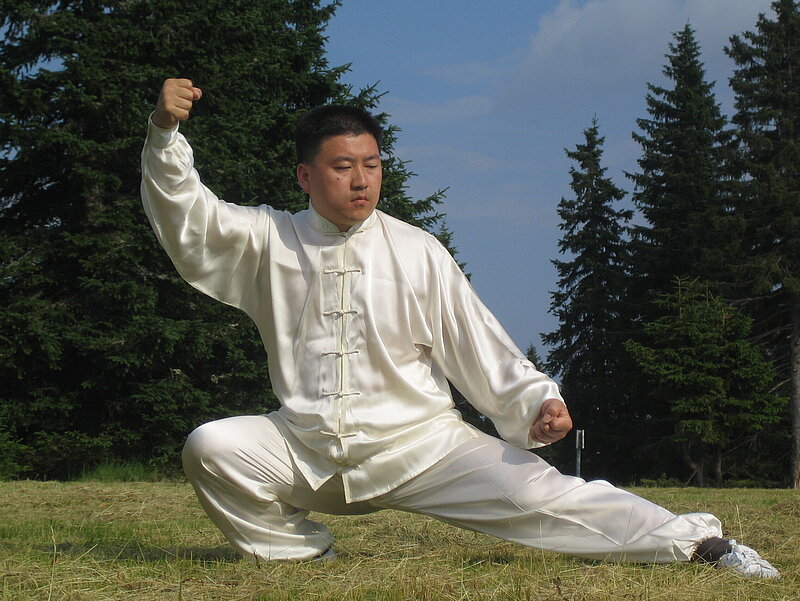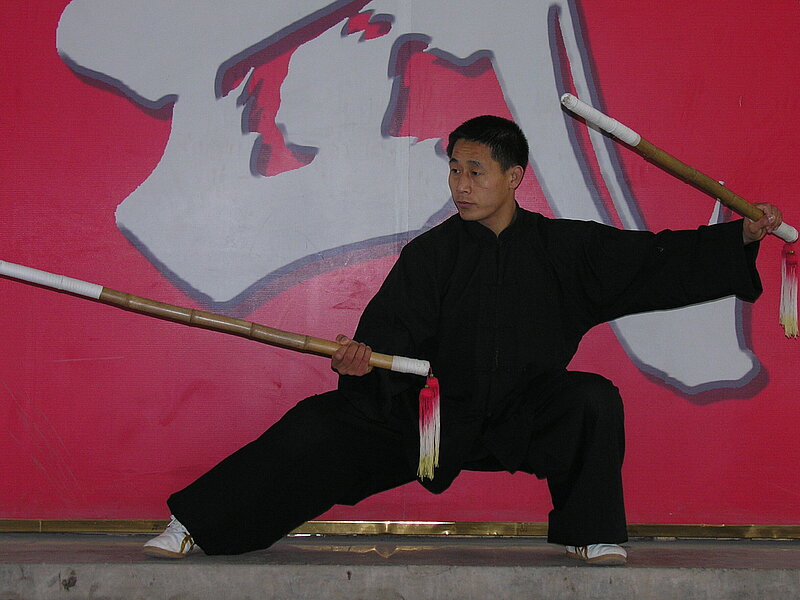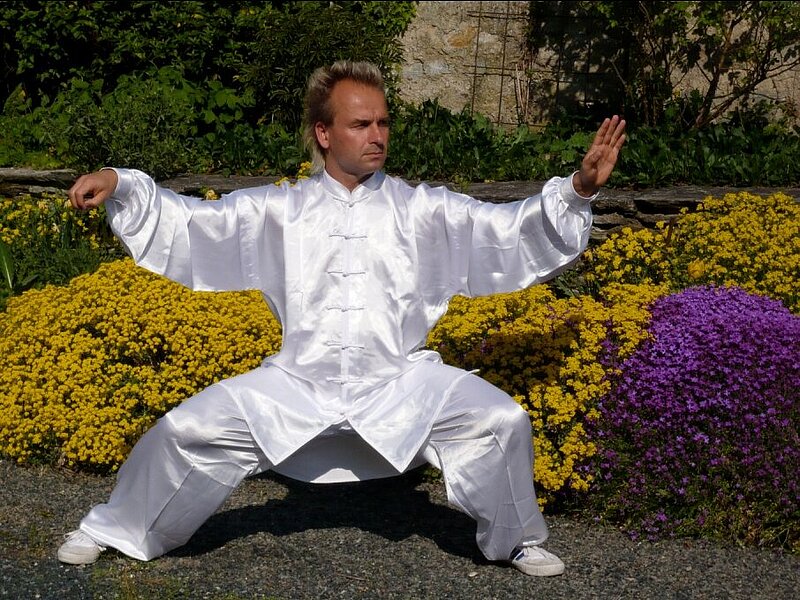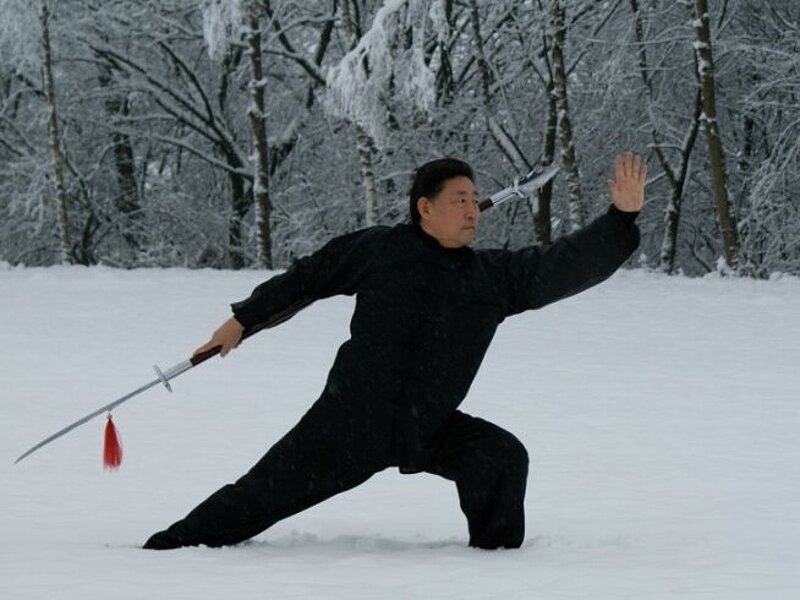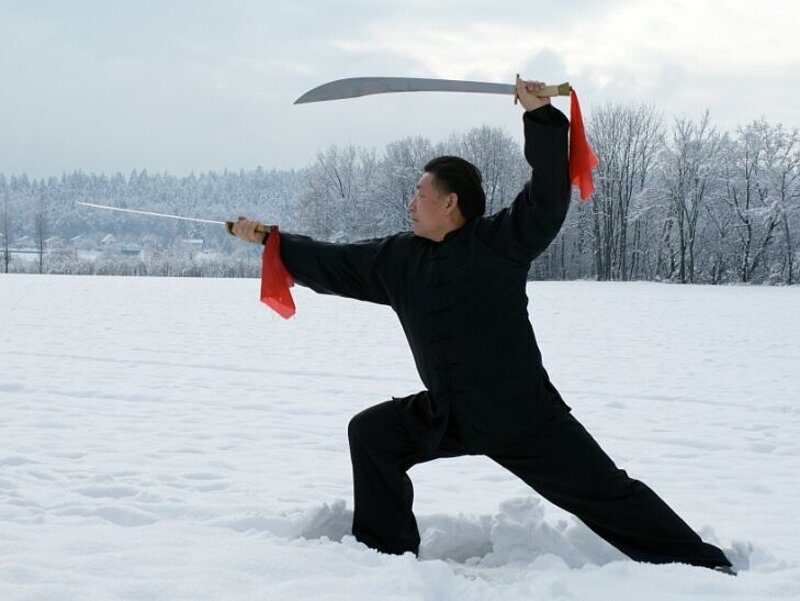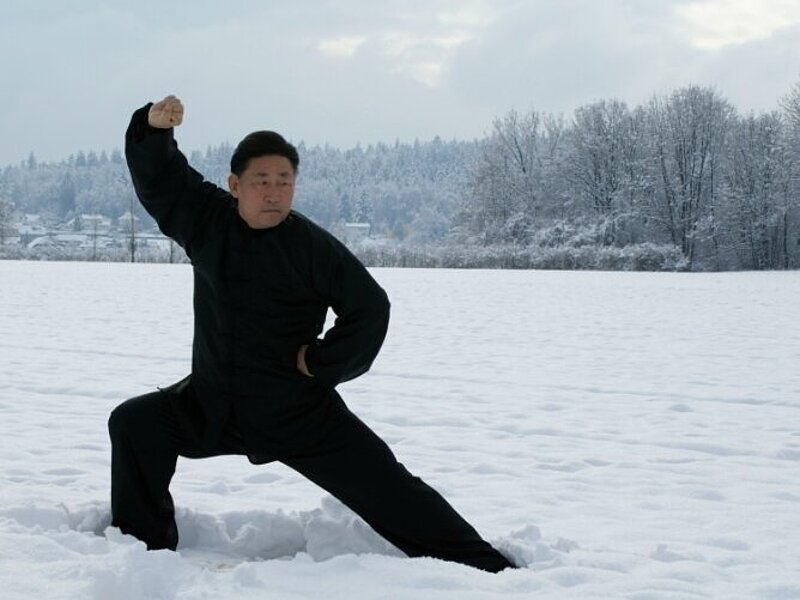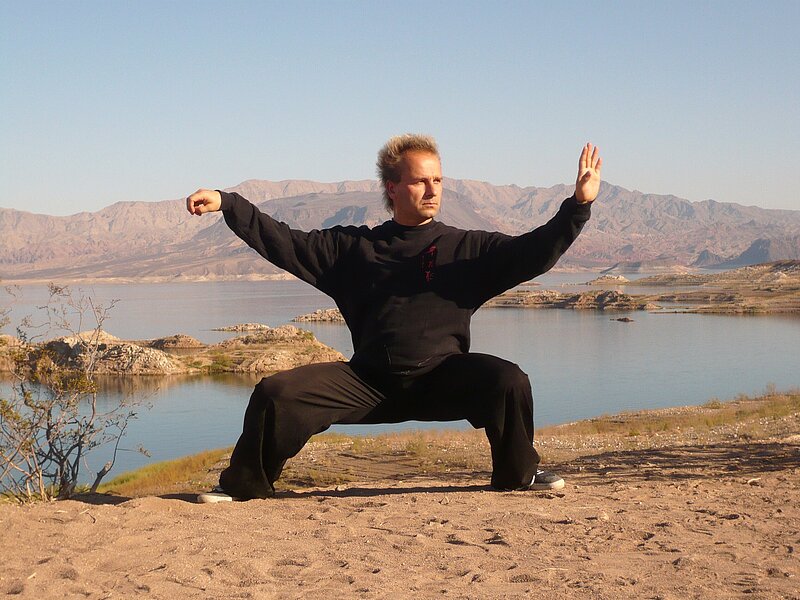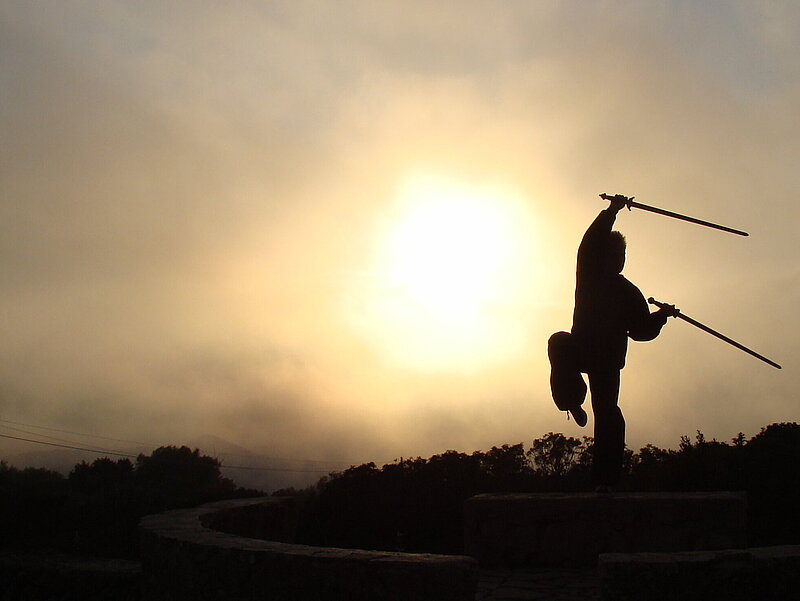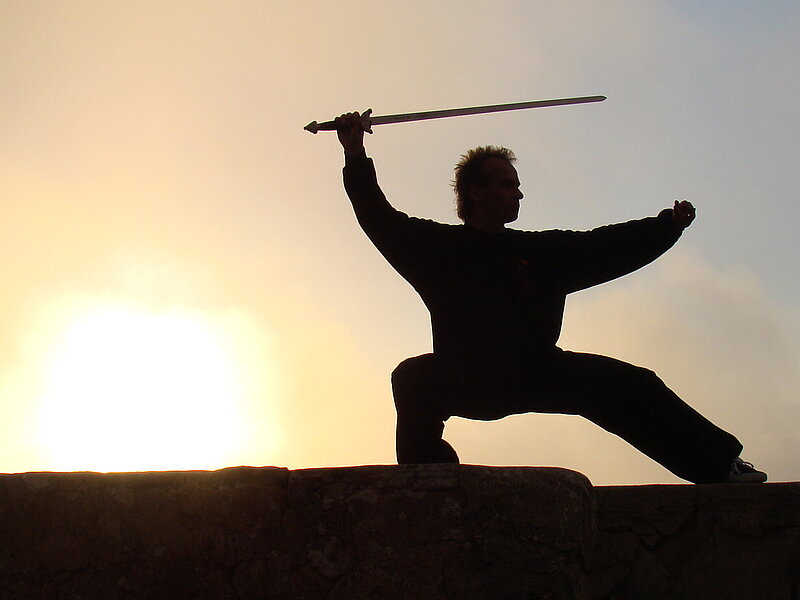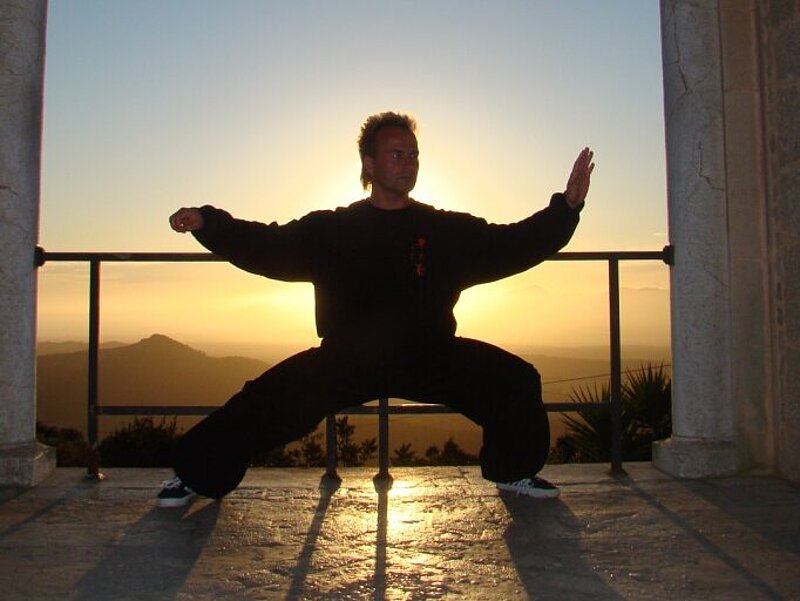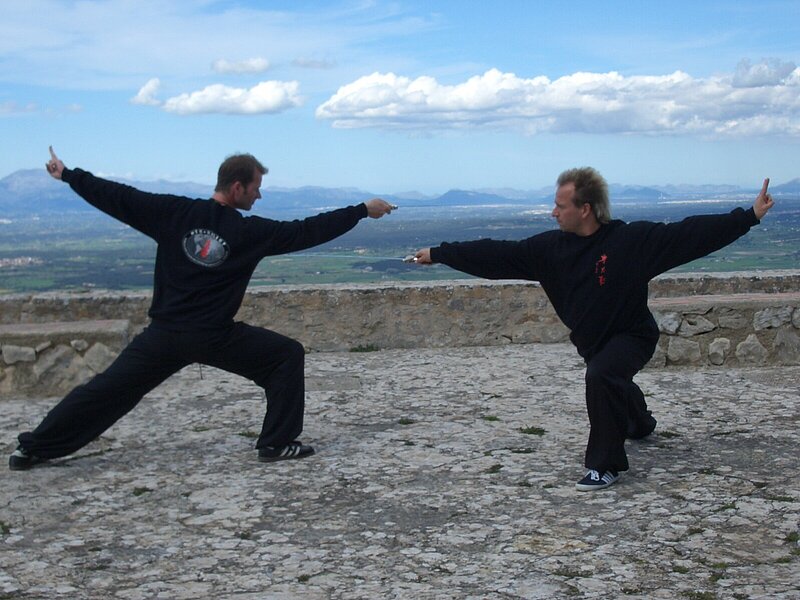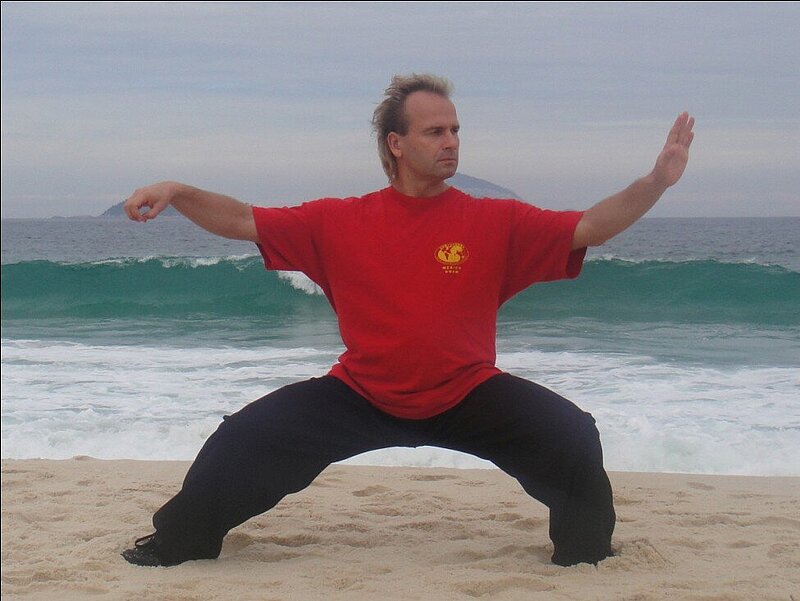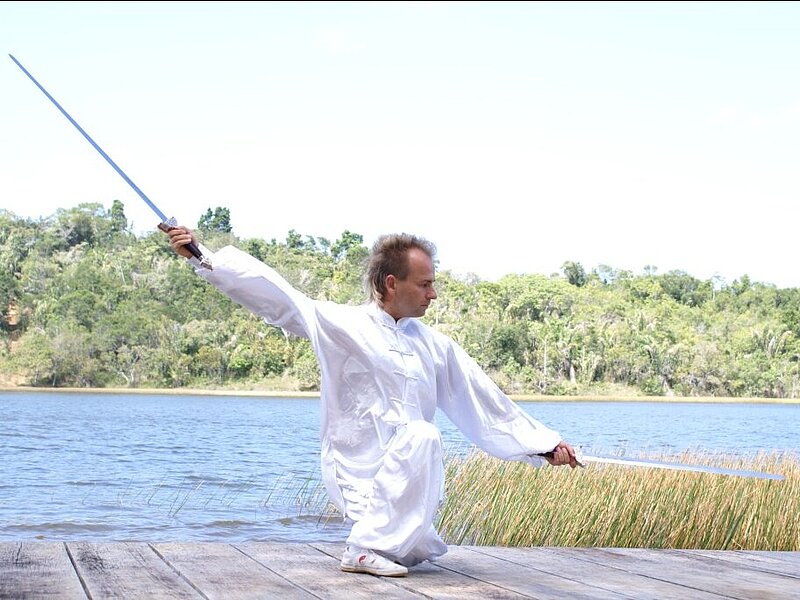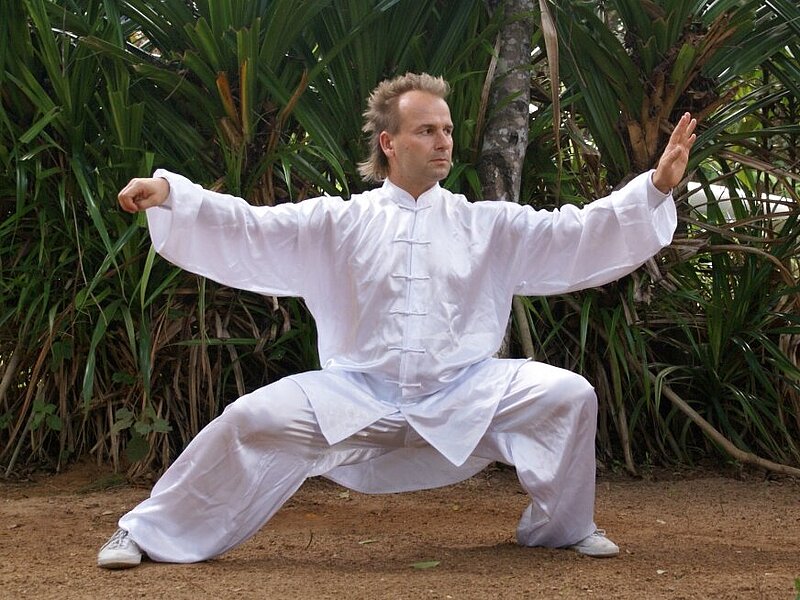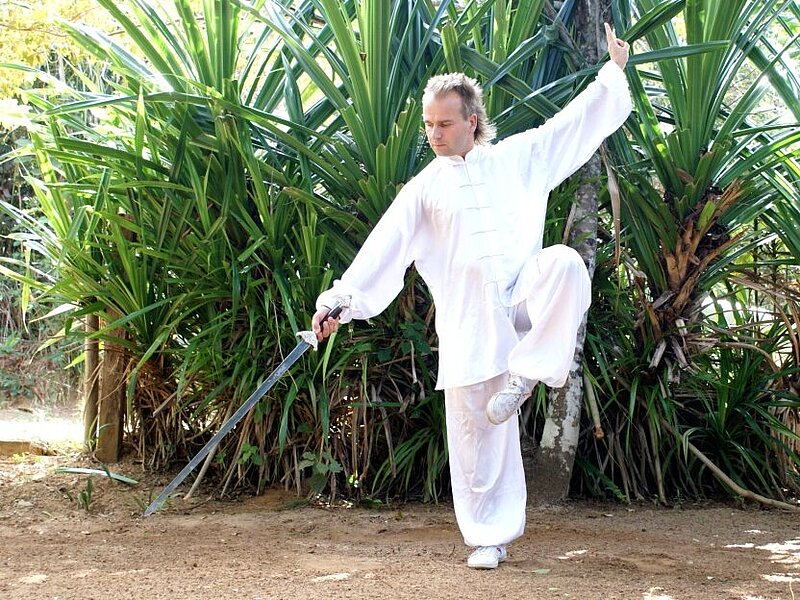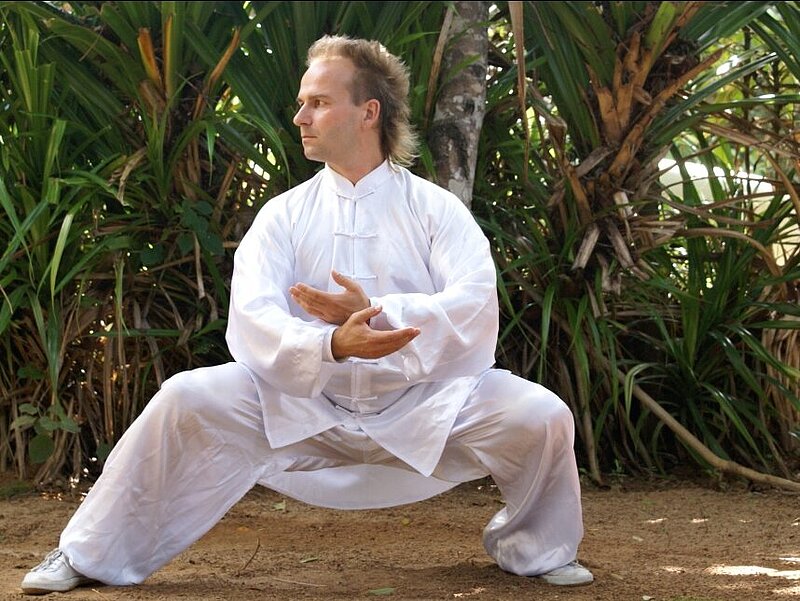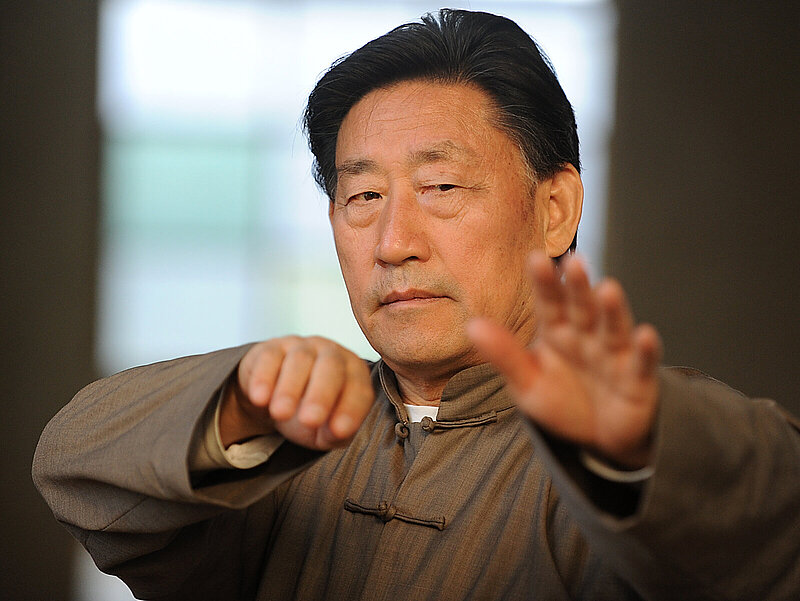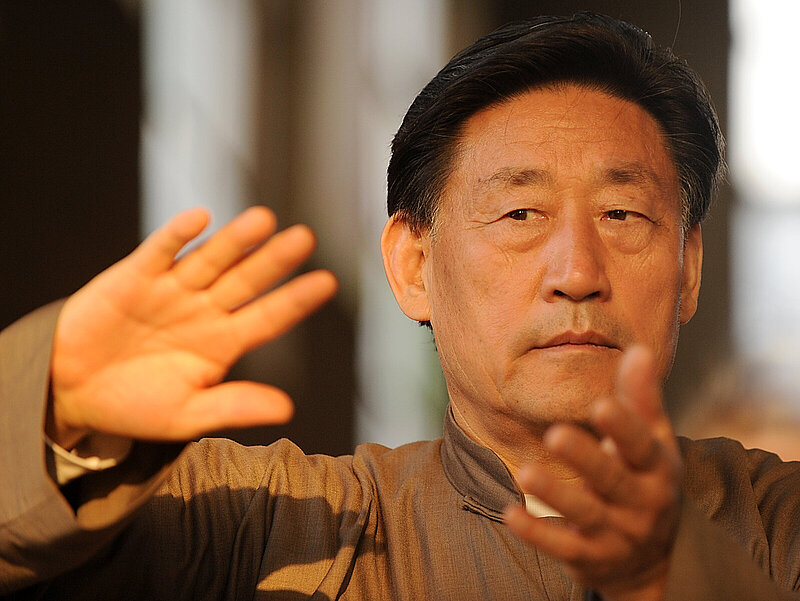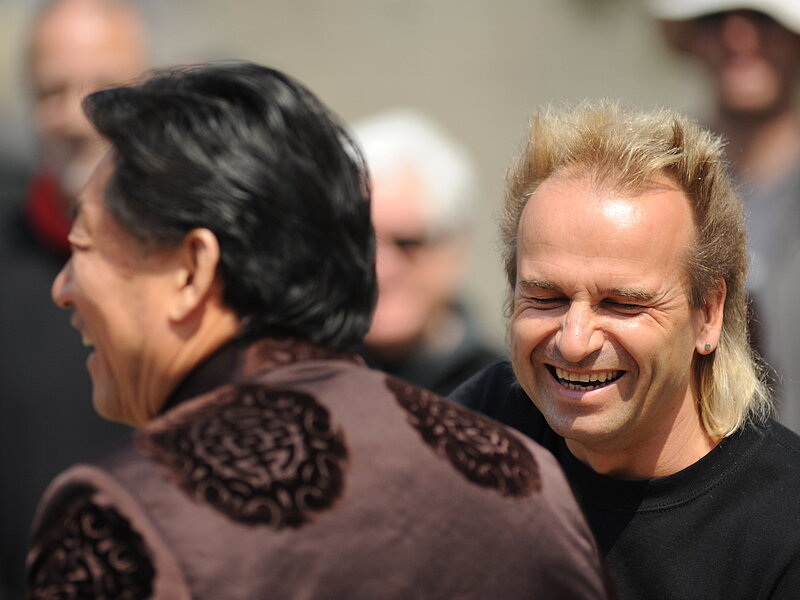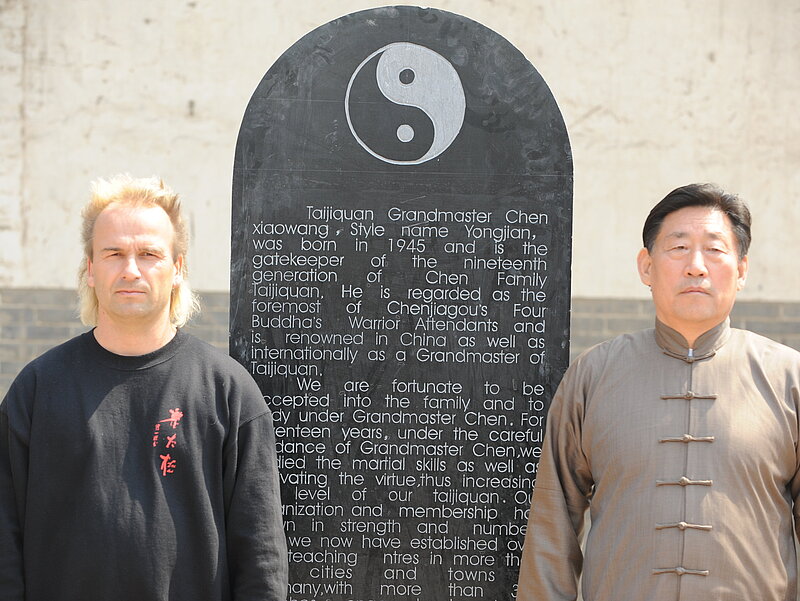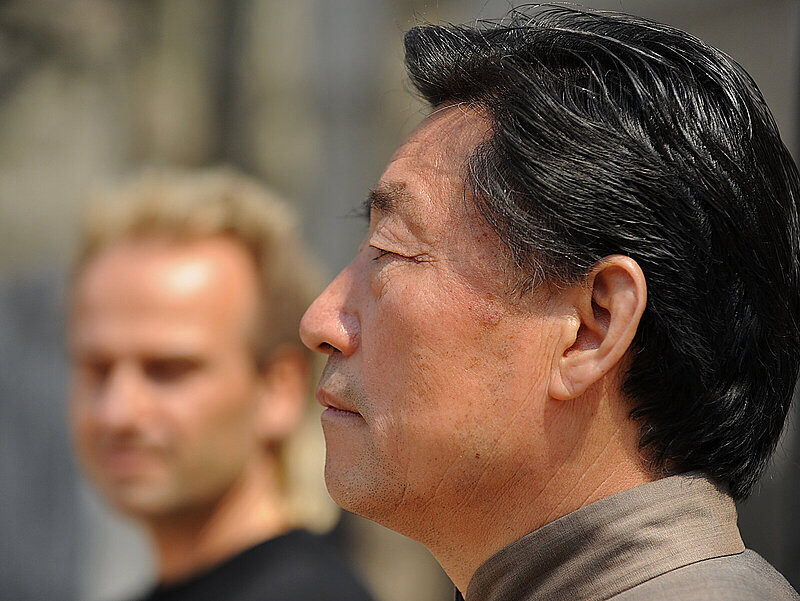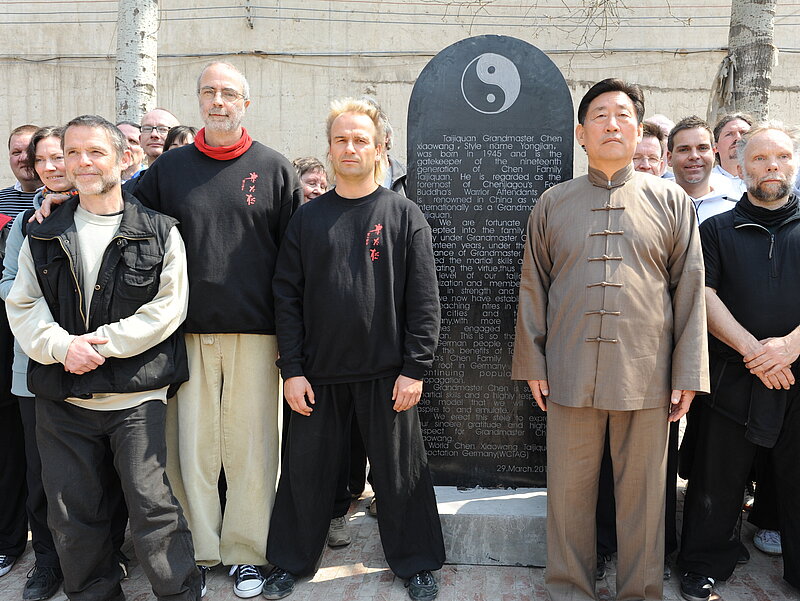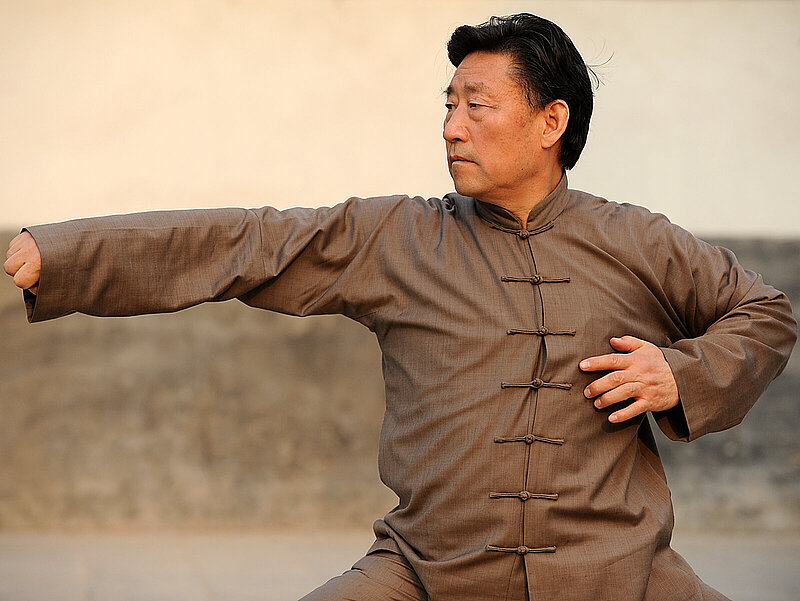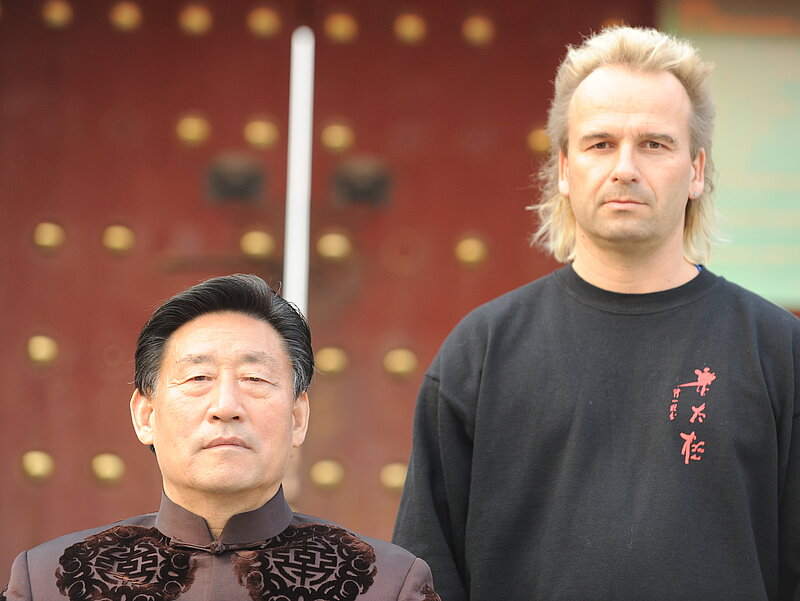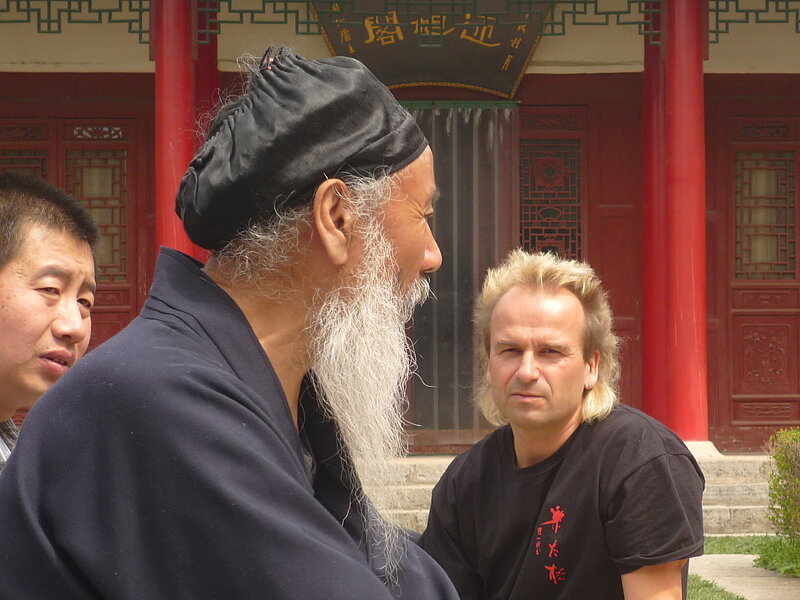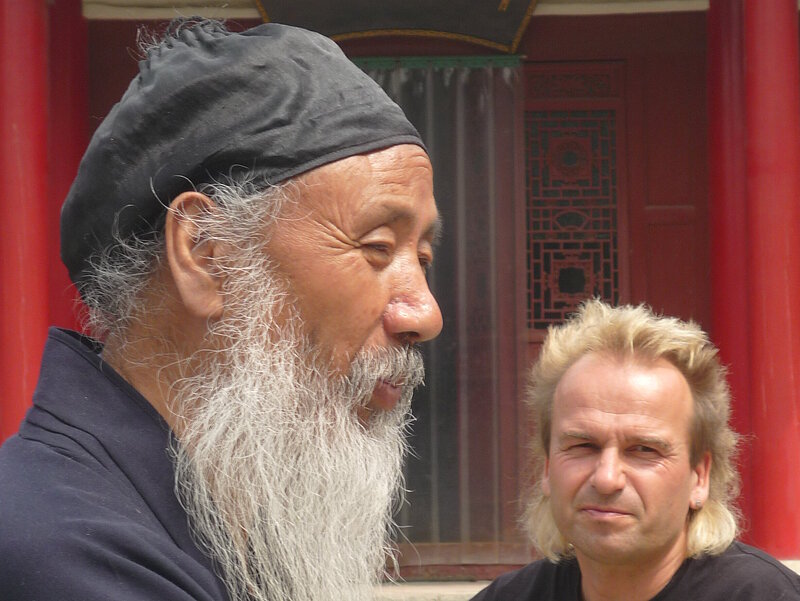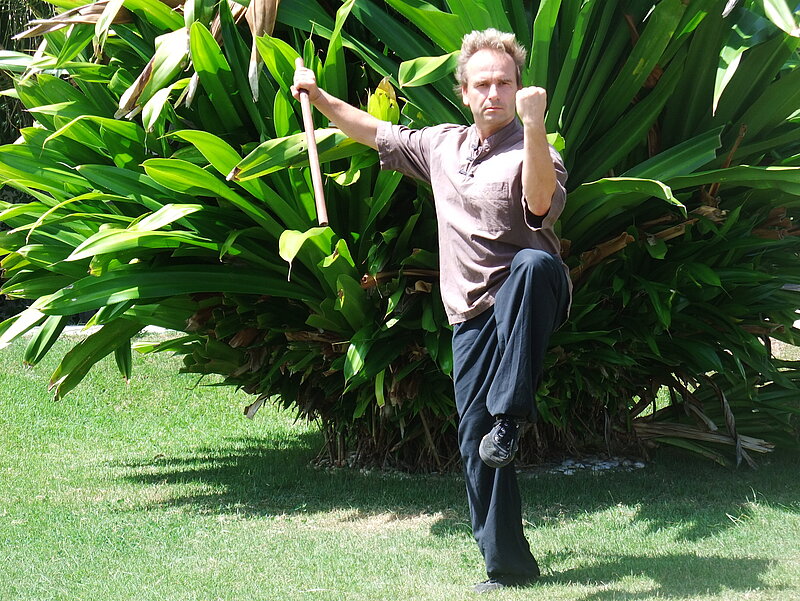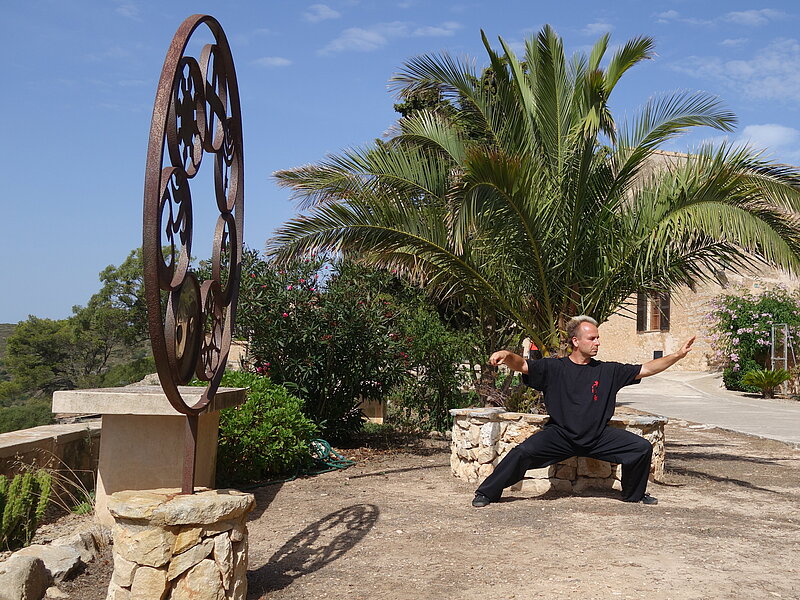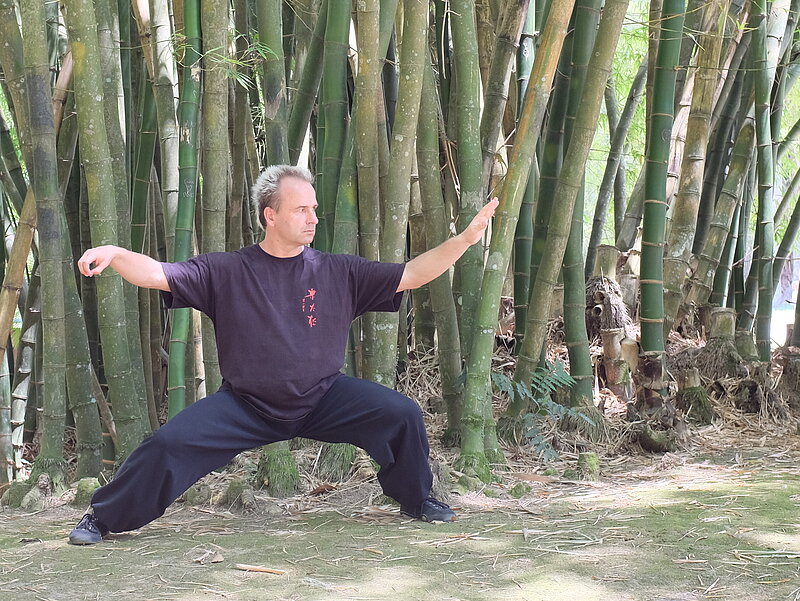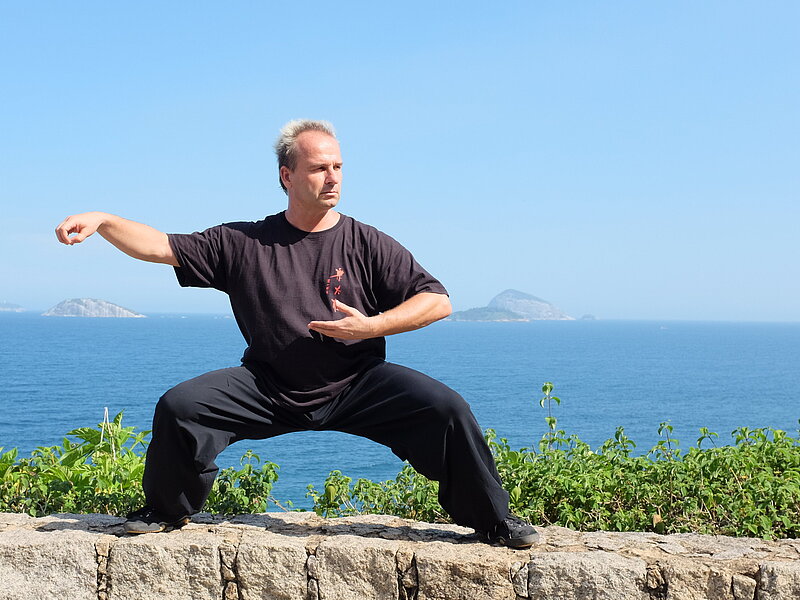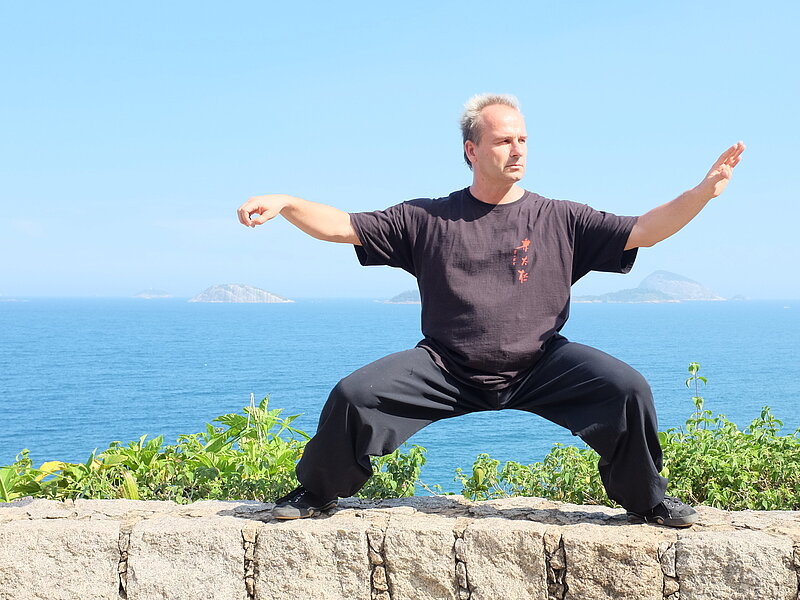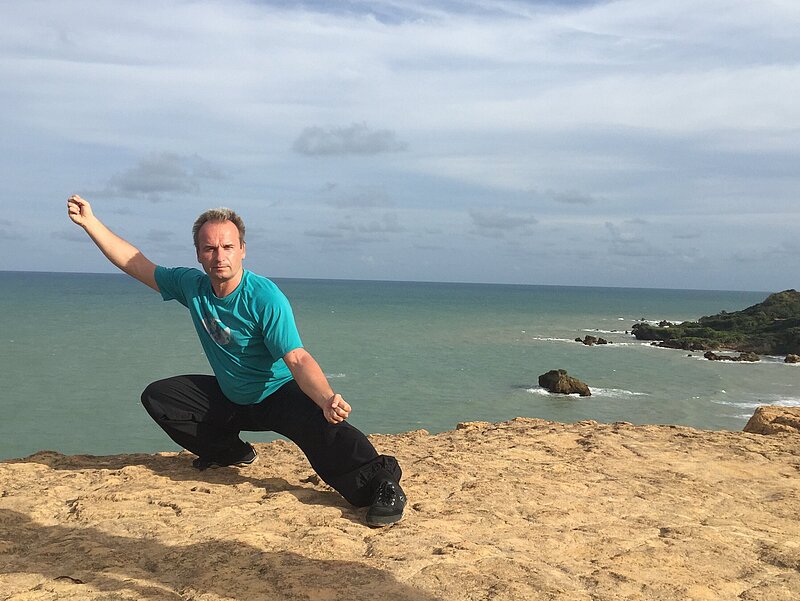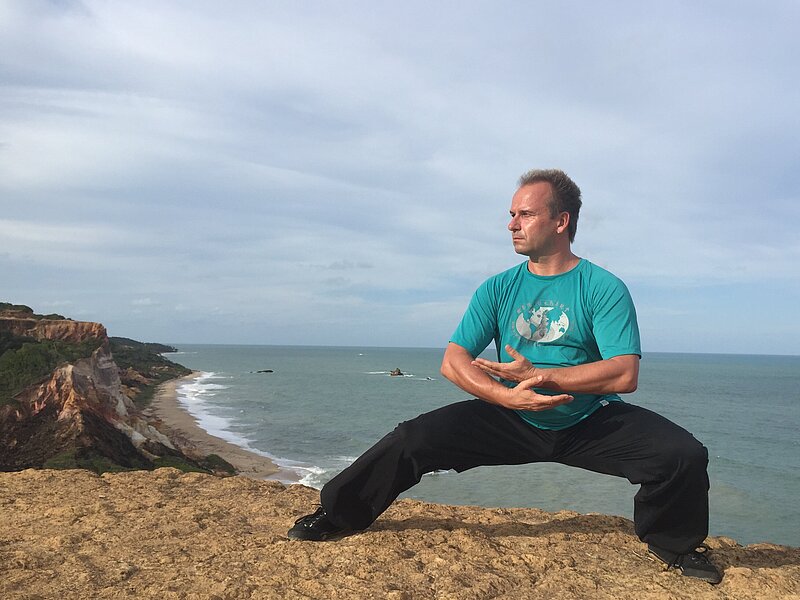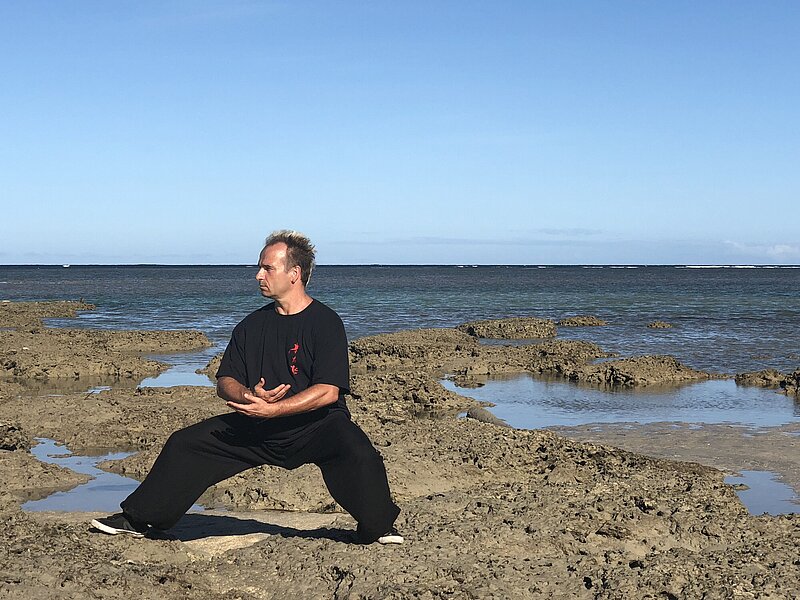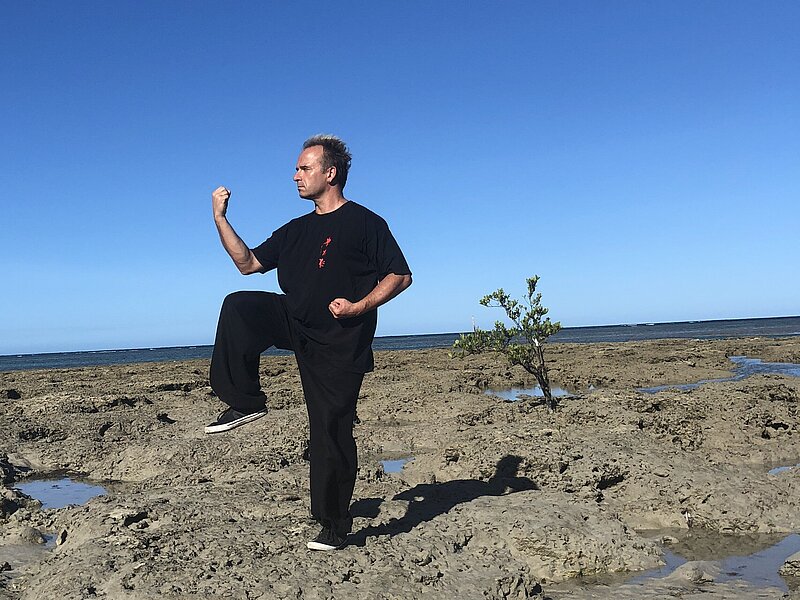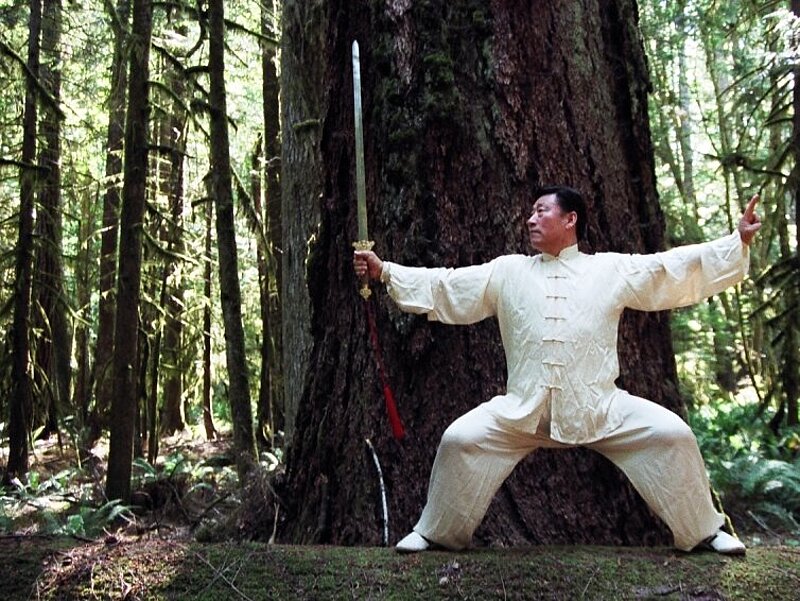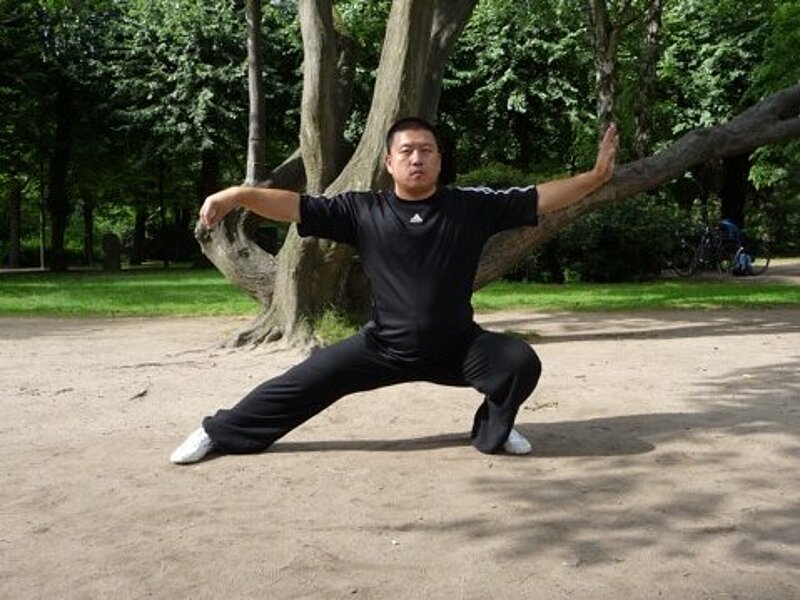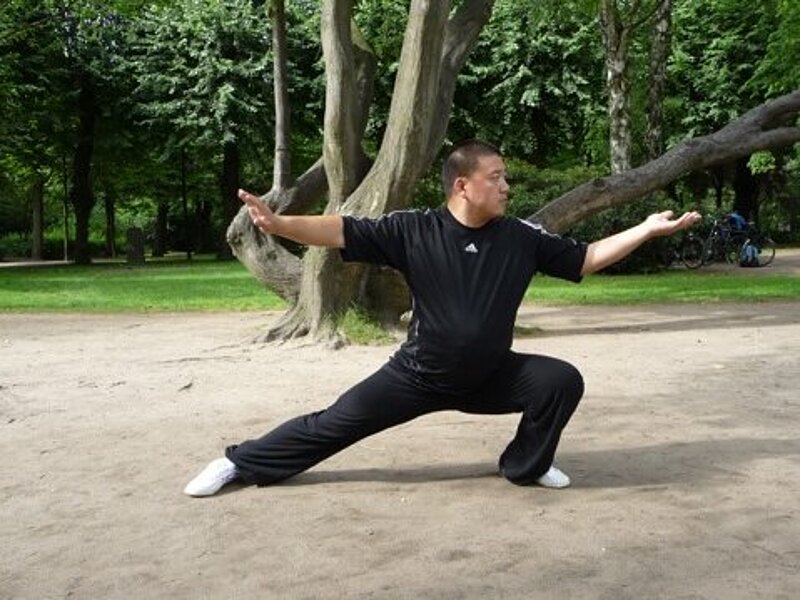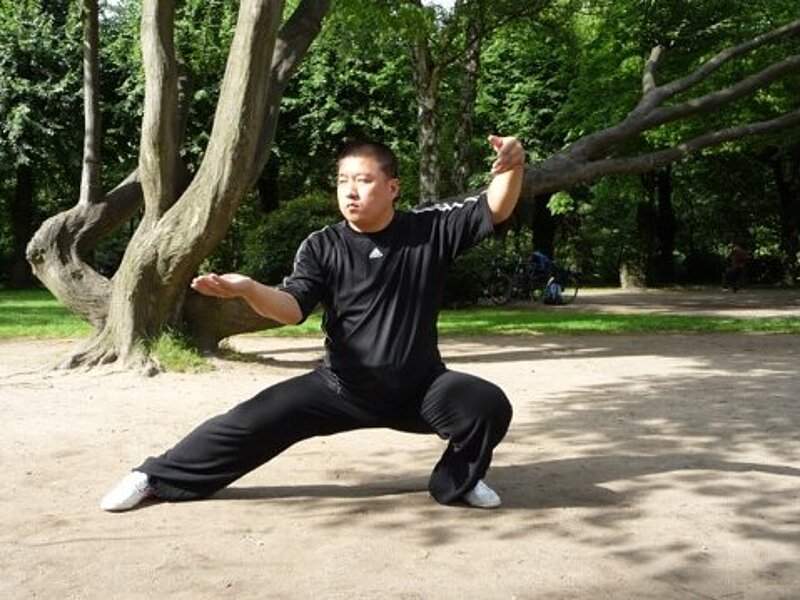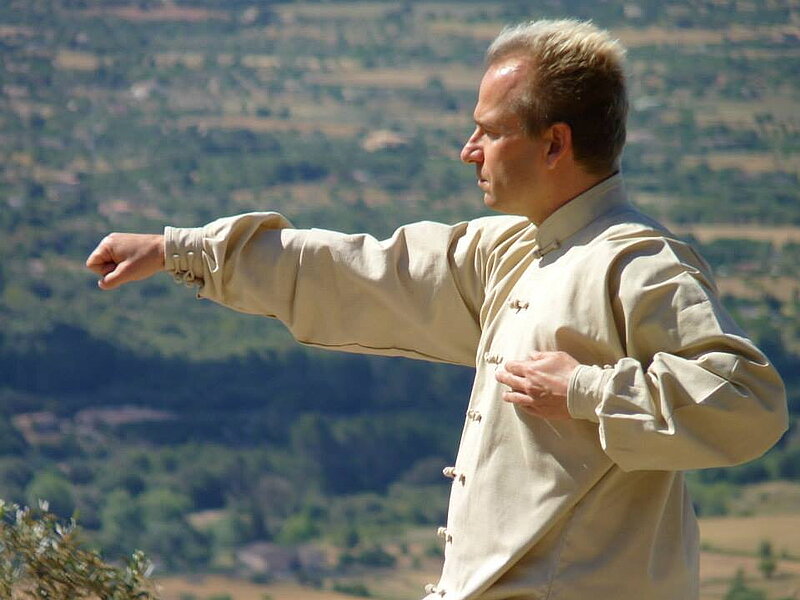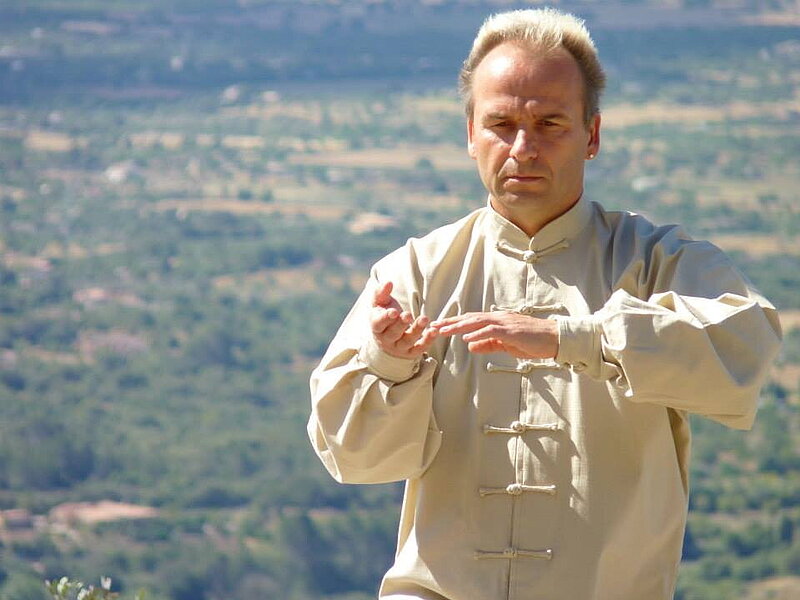Excerpt from the "Taijiquan Tu Shuo"
The Taijiquan Tu Shuo ("The Illustrated Canon of Taijiquan") is probably the most comprehensive Chinese work on Taijiquan. It was written within 12 years at the beginning of the 20th century by Chen Xin (16th generation of the Chen family) and is considered one of the essential classics of the Chen style.
The following is an excerpt from the text (translation INBI):

During Taijiquan practice there is usually no need to orient one's initial position strictly to the cardinal directions. However, since the Big Dipper is placed north, the practitioner should respectfully face in this direction, since it is the source of inherent energy in the human body, known as Zhong-qi or Centralized Intrinsic Energy. Hence all diagrams presented in this book faces north, with the back to the south, the east at the right and west at the left.
To determine the way of heaven you need to resort to the yin and yang substances; to establish the way of earth you need to apply the concept of soft and hard; to find the way of humans you need benevolence and righteousness.
Fill up your legs and arms with silk-reeling energy; lift up your head and look straight ahead. When sitting, be like a door-hinge; while standing, be like an empty room.
Confucius said, "Coming across irreverence, don't look at it; coming across irreverence, don't listen to it; coming across irreverence, don't even talk about it; coming across irreverence, don't move it:' Practicing Taijiquan, try to engage honourably and respectfully with it as a natural part of the process. Following the established practice and rules, look at the Taiji form, listen to it, talk about it and move to it from within. When not practicing the Taiji form, calm your mind and heart and pacify your qi to blend into the Taiji spiritual motif. During practice, quieten your spirit and still your qi to allow the upper and lower limbs to move freely and naturally without pretense. Try to initiate the mechanism of Taijiquan properly in accordance with intrinsic norms and rites. The rites of Taijiquan state that one should not let slow inert qi flow through the body. If this sluggish energy'thickens; you will need to use a great number of movements to prevent the forming of a myriad diseases by driving this energy out from all parts of the body.
The rites are based on respect and joy emanates from peace and harmony. If you can be respectful and maintain peace and harmony, you will become a good practitioner of Taijiquan. It is said, "Taijiquan is the way of art:' As the Master states, "If the established rules are extremely strict, even a highly skilled sage will not be able to follow them despite his gong-Ju:' If it is the subject of art, what should be done to grasp itr It is also said that through Taiji practice you learn to cultivate your morality, correct your character and protect your life. As Mencius states, "Without learning established practice and rules, one cannot be compliant and restrained in behavior:'
Practicing the way of Taiji, one who does not transgress the classical writings and shows respect to every single word from the very beginning to end, can devote himself to the wholehearted study of Taiji. Improving his volition until it is released from the ambitions trapped in his chest, he will reach the state of Oneness in accord with the single principle of Taiji. This principle or Oneness will be studied in the pages below.

